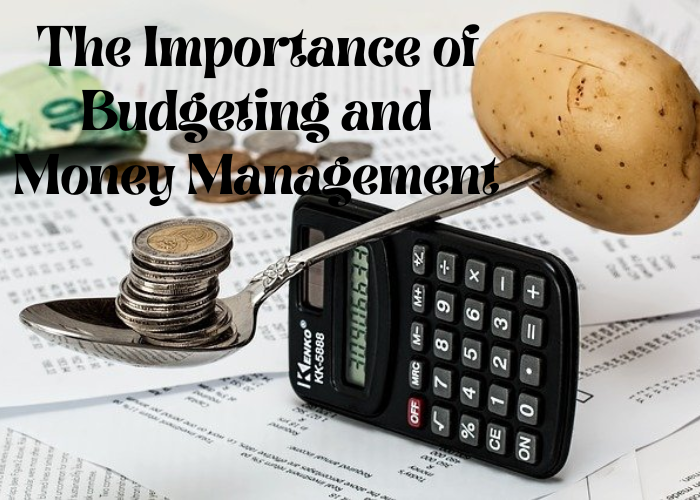I’ve never been good at managing my money. I’m always spending more than I make and falling behind on bills, and it’s frustrating as hell. But now that I know better and how to do it, I can’t wait to get started! If you’re like me and have struggled with budgeting and saving your money, then this post is for you.
Create a Plan for Spending and Saving
If you’re serious about your financial goals, it’s time to create a plan for spending and saving. You can use this as an opportunity to learn more about yourself and what works best for you and if that means setting up automatic payments on your bills, so be it!
There are many different ways to create a budget: some people prefer pen and paper while others prefer software like Mint. Whatever method works best for you is fine; just make sure that whatever method you choose is something that will allow flexibility in case things change unexpectedly throughout the year.
Set Goals
Now that you have a financial plan, it’s time to set goals. It’s not enough to just have a vague idea of what you’d like your money situation to look like in five years’ time; if you want lasting change, then make sure those goals are realistic and measurable.
In the same way that a dietician might recommend eating more fruits and vegetables (or less sugar), so too should your goal-setting process involve more fruit and vegetables, specifically: clarity about how much money you’ll need per month or year, along with specific dates by which these milestones will be reached; an understanding of how much debt is currently piling up on top of whatever savings might exist; an estimate for how much income will be coming in each month; as well as whether there’ll even be any left over after paying expenses!
Find Ways to Make Money
You don’t have to be a millionaire to start making money. There are plenty of ways to make extra cash, and they don’t require much investment or effort on your part.
- Start a side hustle: If you have the time and energy, it’s worth finding ways that allow you to earn some extra cash without taking on more responsibility at work. Some people make extra money by selling their own products online (like Amazon), others use their skills as freelance writers, designers or copywriters and still others create websites where they can earn from advertising revenue generated by their site visitors.
- Offer services as a freelancer: Freelancing is one option that allows people with various skillsets access into this world of freelancing opportunities.* Look for opportunities outside the workplace: Take advantage of every opportunity available in your community whether it be volunteering at an organization like Habitat For Humanity or tutoring students with learning disabilities through tutoring programs run by local schools.
- Get another job if necessary: If none of these options appeal then consider finding another source of income such as working part-time at retail stores during evenings or weekends when kids aren’t around; driving Uber/Lyft/Taxi drivers who need someone else using their car while they’re away doing other things like going out socially with friends etcetera.* Look for cash jobs instead
Pay Yourself First
You’ve probably heard this advice before, but it’s one of the most important things you can do to manage your money and stay out of debt. If you don’t pay yourself first, then everything else in life will be secondary to your spending habits. This can lead to overspending on unnecessary things like coffee or lunch with friends or worse: going into debt for items that could have been paid for with cash instead of credit cards (and paying interest on those purchases).
The best way to keep from going into debt is by setting aside a portion of each paycheck before any other expenses are taken out (for example $50 per paycheck). Then use whatever left over money is left over after these payments are made as an investment in yourself: buying stocks online; saving up for something big like a house or car; investing in mutual funds; even paying off student loans if they’re manageable at this point!
A Good Money Management Plan Will Help You Reach Your Goals
If you’re trying to get out of debt and into financial freedom, a good money management plan can help. A budget is a plan for how you will spend your money that shows where the money comes from, how much it’ll cost and how much is left over at the end of each month.
The first step in creating your own budget is deciding what kind of person you want to be financially whether that means being able to save up enough cash so that when life throws curveballs at us (like unexpected bills), we always come out on top with our finances intact; or if it’s more important for us to live within our means so that every dollar counts toward reaching our goals (and doesn’t just go straight back into debt).
Once those goals are set, create an account where all receipts will be deposited into each month until payday arrives, this way there won’t be any surprises when bills arrive! Next, track spending using online services like Mint or YNAB; these programs allow users to access their accounts from anywhere via smartphone app or desktop software running on Windows/Mac OS X platforms. Once everything is entered into these systems manually once per week before payday arrives; then delete all entries again at midnight sharpEST
Conclusion
We hope this article has given you some useful tips for managing your money. Remember, it’s not about getting rich or spending recklessly, it’s about having a plan that works for you. If you stick to it and follow the steps we outlined above, I guarantee that you will be able to get out of debt and start saving more money than ever before!








Leave a Comment